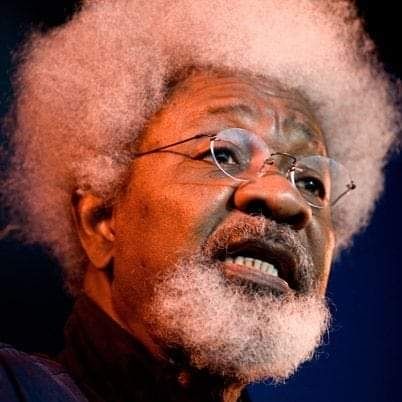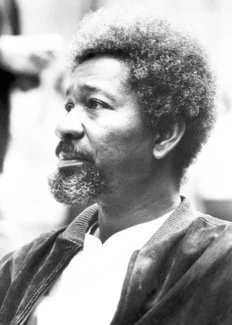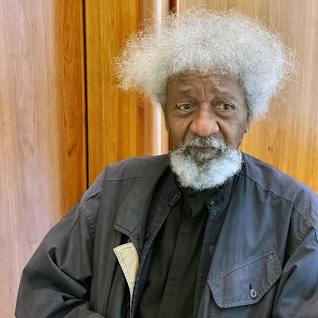Wole Soyinka was born on July 13, 1934, in Abeokuta, southwest Nigeria. A prolific author whose works also include volumes of poetry and numerous novels, Soyinka is among the greatest at his craft today. After winning the Nobel Prize for Literature he was highly sought after for his essays and lectures.
A dedicated and talented man, Wole was also of fortune birth, as a member of the Ransome-Kuti family and related to the Odemo, or King, of Isara-Remo Samuel Akinsanya, a founding father of Nigeria. He was a political activist himself and his social commentary would appear in his works, plays, novels, and even movies.
As an advocate for democracy, he was at odds with a string of authoritarian Nigerian governments. He was imprisoned for nearly two years for his part in trying to avert the Nigerian civil war of 1967. He was exiled twice and even sentenced to death in absentia.

Wole Soyinka never stopped writing, not in prison or after he won his Nobel Prize for Literature in 1986, the First African Nobel laureate. He was finally allowed back home to Nigeria in 1998 and continues to write. His latest work, The Putin Files, a volume of the series "Interventions", was released just last month.
During the civil war in Nigeria, Soyinka appealed in an article for a cease-fire. For this he was arrested in 1967, accused of conspiring with the Biafra rebels, and was held as a political prisoner for 22 months until 1969. Soyinka has published about 20 works: drama, novels, and poetry. He writes in English and his literary language is marked by great scope and richness of words.
As a dramatist, Soyinka has been influenced by, among others, the Irish writer, J.M. Synge, but links up with the traditional popular African theatre with its combination of dance, music, and action. He bases his writing on the mythology of his own tribe-the Yoruba-with Ogun, the god of iron and war, at the center. He wrote his first plays during his time in London, The Swamp Dwellers and The Lion and the Jewel (a light comedy), which were performed at Ibadan in 1958 and 1959 and were published in 1963. Later, satirical comedies are The Trial of Brother Jero (performed in 1960, publ. 1963) with its sequel, Jero’s Metamorphosis (performed 1974, publ. 1973), A Dance of the Forests (performed 1960, publ.1963), Kongi’s Harvest (performed 1965, publ. 1967) and Madmen and Specialists (performed 1970, publ. 1971). Among Soyinka’s serious philosophic plays are (apart from “The Swamp Dwellers“) The Strong Breed (performed 1966, publ. 1963), The Road ( 1965), and Death and the King’s Horseman (performed 1976, publ. 1975). In The Bacchae of Euripides (1973), he has rewritten the Bacchae for the African stage and in Opera Wonyosi (performed 1977, publ. 1981), bases himself on John Gay’s Beggar’s Opera and Brecht’s The Threepenny Opera. Soyinka’s latest dramatic works are A Play of Giants (1984) and Requiem for a Futurologist (1985).


Soyinka has written two novels, The Interpreters (1965), narratively, a complicated work that has been compared to Joyce’s and Faulkner’s, in which six Nigerian intellectuals discuss and interpret their African experiences, and Season of Anomy (1973) which is based on the writer’s thoughts during his imprisonment and confronts the Orpheus and Euridice myth with the mythology of the Yoruba. Purely autobiographical are The Man Died: Prison Notes (1972) and the account of his childhood, Aké ( 1981), in which the parents’ warmth and interest in their son are prominent. Literary essays are collected in, among others, Myth, Literature, and the African World (1975).
Soyinka’s poems, which show a close connection to his plays, are collected in Idanre, and Other Poems (1967), Poems from Prison (1969), A Shuttle in the Crypt (1972) the long poem Ogun Abibiman (1976), and Mandela’s Earth and Other Poems (1988).

